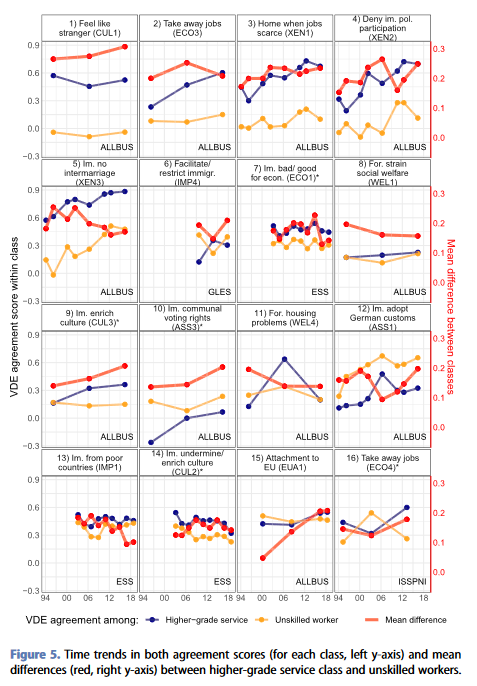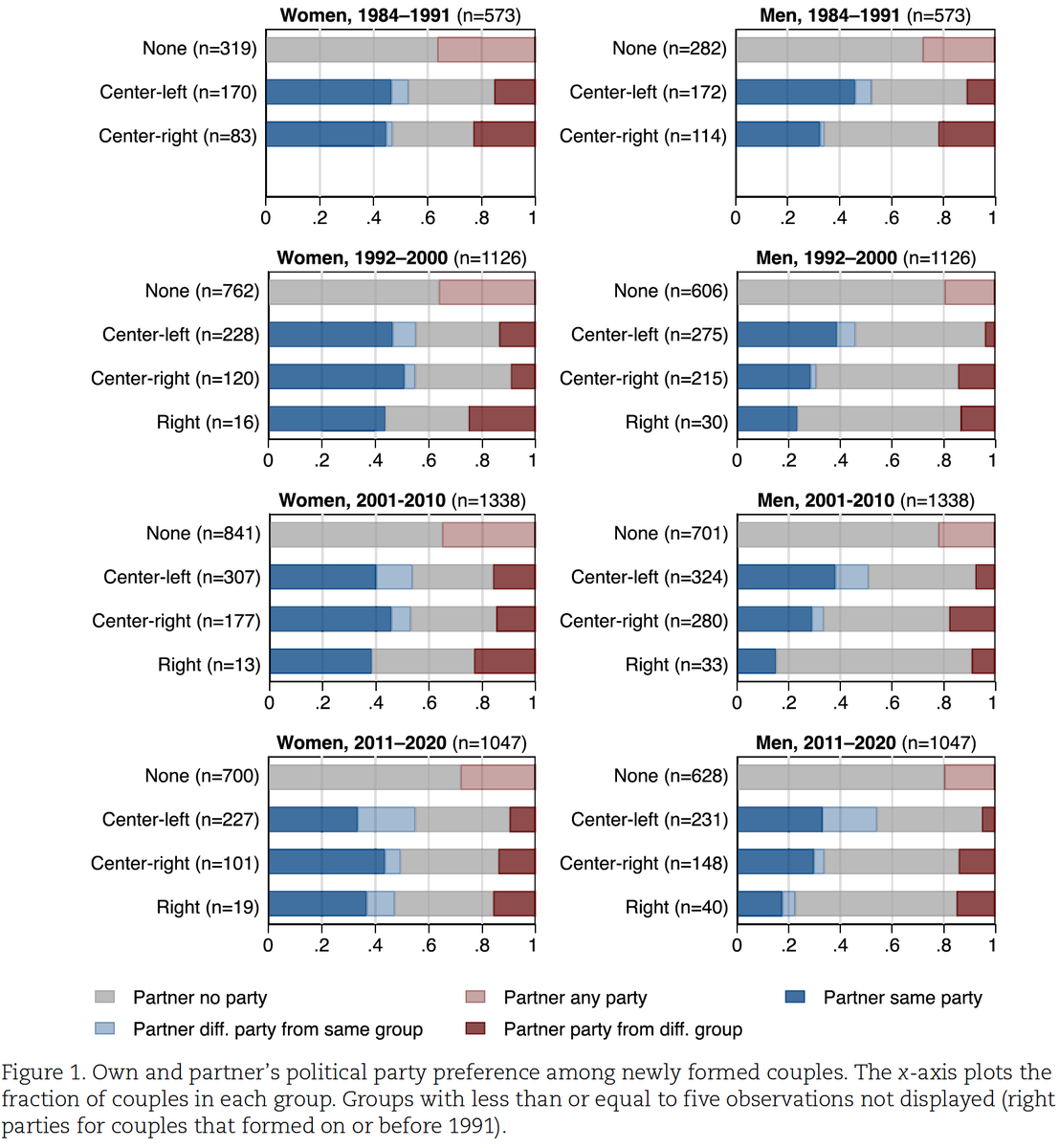
Stephan Dochow-Sondershaus
@stephandoc
Sociologist at Copenhagen University; public immigration attitudes, ethnic diversity and segregation, causal inference, and educational inequalities.
ID: 922374329614176257
https://stephandoc.github.io/ 23-10-2017 08:09:11
120 Tweet
226 Followers
552 Following



Better report not only log-numbers! The study in Scientific Reports by Rodriguez Sanchez, Julian Wucherpfennig, stefano maria iacus & Rischke compares after descriptions (nature.com/articles/s4159…) logs of migration rates (attempted ocean crossings). De-logging reveals implausible & uncertain predictions?





New publication!🎉 In "For every action a reaction?" (EJPR journal), Amy Alexander, Nicholas Charron & I compare two cultural threats: Refugee immigration & women's rights. In a survey experiment across 27 EU countries... 🧵⬇️ doi.org/10.1111/1475-6…

🇪🇺 NEW ARTICLE:🇪🇺 Stephan Dochow-Sondershaus and @CelineTeney investigate social class polarization in Germany using European Social Survey International Social Survey Programme ISSP German Longitudinal Election Study (GLES) OPEN ACCESS: doi.org/10.1080/146166…


In a new publication, @CelineTeney, Tobias Wolfram, and I assess item characteristics most likely to lead to distributive opinion polarization. Check it out: journals.plos.org/plosone/articl…


Great contributions by Katherine Hoffmann Pham Filiz Garip Burt Monroe @[email protected] Stephan Dochow-Sondershaus Jan Lorenz @[email protected] Rocco Paolillo moving @roccopaolillo.bsky.social Andrea Pettrachin Lorenzo Gabrielli Jisu Kim Sarah Ludwig-Dehm Steffen Pötzschke and many others! This project originated as a WeDSSS Wealth Data Science Summer School school, which was financed by VolkswagenStiftung.



NEW ISSUE OUT: Articles by Lina Tobler Nevena Kulic Jani Erola Stephan Dochow-Sondershaus @CelineTeney Cécile Rodrigues | @grisoudre.bsky.social Thijs van den Broek Øyvind N. Wiborg Ginevra Floridi Ludovico Carrino Giuseppe Cugnata Nicolò Bertuzzi Louisa Parks Lorenzo Zamponi Sam Harkness LINK: tandfonline.com/toc/reus20/26/5


🆕📄in Social Forces with Daniela Grunow Why are partners in 🇩🇪similar in their political party preference? We find: - Political similarity largely NOT explained by matching on education, religiosity etc - Partners align politicaly over time Social Forces academic.oup.com/sf/advance-art…


New study on networks, status, and gender in Social Forces with Xinwei Xu. Girls receive fewer status ascriptions than boys, status is mostly granted within genders, and similar behaviors-e.g., drinking-are status-relevant for both genders among students: academic.oup.com/sf/advance-art…




